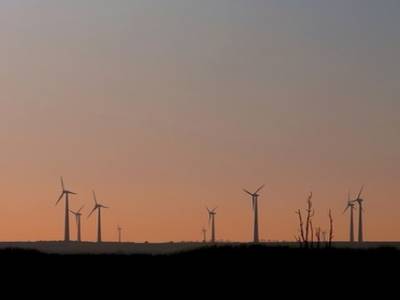Looking to deepen your expertise in the dynamic realm of energy law? An LL.M. in Energy Law offers a strategic pathway to navigate the intricate legal landscape governing the global energy sector. Governments worldwide wield regulatory power over energy, shaping laws ranging from fossil fuel extraction to renewable energy initiatives. As environmental concerns gain prominence, the intersection of energy production and environmental regulations creates a demand for specialized legal professionals.
By pursuing an LL.M. in Energy Law, students delve into multifaceted facets of the energy industry, staying abreast of regulatory evolutions, economic dynamics, and pivotal industry shifts. Programs often explore emerging trends like clean energy regulations and evolving land use policies, equipping graduates with comprehensive knowledge to address contemporary challenges.
Career opportunities abound for LL.M. graduates in Energy Law, spanning the public sector, private law firms with energy-focused practices, and influential non-governmental organizations (NGOs) and international bodies. Gain the expertise to shape the future of energy law with a top-tier LL.M. program tailored to meet the demands of today's energy landscape. Explore our curated list of the Top 10 LL.M. Programs for Energy Law to discover leading institutions at the forefront of energy law education.

Established in 1977 amidst the North Sea Oil boom, Dundee’s Centre for Energy, Petroleum and Mineral Law offers LL.M. programs covering various facets of the energy sector. These include Energy Law in Policy, Petroleum Taxation and Finance, and Mineral Law and Policy. One notable aspect of Dundee’s LL.M. programs is the incorporation of internships, providing students with practical experience in their chosen field. These internships offer opportunities for hands-on learning, allowing students to gain insights into the complexities of energy regulation, finance, and resource management. Dundee University's Center for Energy, Petroleum and Mineral Law stands as a long-standing institution in the field of energy legal education, offering students a comprehensive understanding of the legal frameworks governing the energy industry.
View School Profile
The KBH Energy Center at UT Austin is renowned for its diverse research portfolio, spanning an array of energy topics ranging from decarbonization initiatives to the environmental impacts of gas pipelines and land use policies. This breadth of focus reflects Austin’s position at the forefront of energy discourse, addressing pressing issues that resonate globally. For students interested in energy law and related fields, UT Austin offers an LL.M. concentration in Global Energy, International Arbitration, and Environmental Law. This specialized program equips students with the knowledge and skills needed to navigate complex legal challenges in the energy sector, preparing them for impactful careers in areas such as international arbitration, environmental advocacy, and energy policy. Moreover, students have the opportunity to contribute to UT’s energy-related journals, including the Texas Journal of Oil, Gas, and Energy Law. These platforms allow aspiring legal scholars to engage in scholarly discourse, share insights, and shape the conversation surrounding key energy law issues.
View School Profile
Situated amidst the oil-rich North Sea, Aberdeen University offers a prime location for students to immerse themselves in the complexities of the energy sector. As a dynamic and transitioning energy hub, Aberdeen provides a unique backdrop for studying energy law and policy. At the Aberdeen University Centre for Energy Law, students have access to cutting-edge research and resources that delve into pertinent energy issues. Those interested in energy law can pursue a specialized LL.M. program in Energy Transition Law. This program delves into the evolving legal landscape surrounding the transition to sustainable energy sources, equipping students with the knowledge and skills needed to navigate the complex challenges of the energy transition. Additionally, Aberdeen University collaborates with other institutions including the University of Groningen, the University of Oslo, and the University of Copenhagen to offer the part-time North Sea Energy Law program. This collaborative initiative provides students with a holistic understanding of energy law within the context of the North Sea region, fostering interdisciplinary perspectives and practical insights.
View School ProfileNestled in the picturesque landscapes of Vermont, Vermont Law School's Institute for Energy and the Environment stands as a beacon of research excellence at the intersection of energy and the environment. Leveraging insights from this esteemed research center, Vermont Law School offers a premier LL.M. program in Energy Law. Faculty members associated with the Institute for Energy and the Environment bring their expertise to Vermont Law School's LL.M. program, providing students with insights into the legal intricacies of the energy sector and where it intersects with the law. As one of the top programs in the United States specializing in energy law, Vermont Law School's LL.M. curriculum is designed to equip students with the knowledge and skills needed to address pressing energy law issues.
View School Profile
Located in the heart of one of the world’s largest oil and gas hubs, Houston, the University of Houston Law Center (UHLC) offers a prime location for LL.M. students seeking proximity to energy industry action. With over 5,000 energy firms in the region, Houston provides a dynamic environment for studying the intersection between energy, law, and policy. Houston is also home to one of the top Energy LL.M. programs in the US: UHLC's LL.M. program in Energy, Environment, and Natural Resources Law. The program equips students with the knowledge and skills needed to navigate the intricate policies governing energy production, transportation, and utilization. Through rigorous coursework and practical experiences, students gain insights into the legal frameworks shaping the energy landscape. At UHLC, students also benefit from the Environment, Energy & Natural Resources Center, a renowned research institution exploring the intersection of energy production and environmental impacts. The center publishes "Energy Insights" regularly, featuring research contributions from students and faculty, providing valuable insights into contemporary energy law issues.
View School Profile
For students looking to focus on the legal overlap between climate and energy, Berkeley Law is perhaps one of the best schools in the world. LL.M. students at Berkeley Law have the opportunity to deepen their expertise in energy and clean technology through a certificate in Energy and Clean Technology. This program equips students with the knowledge and skills needed to navigate complex legal issues in the rapidly evolving landscape of clean energy and sustainability. The LL.M. and associate energy certificate leverage insights from the school’s Center for Law, Energy & the Environment (CLEE), where research and events delve into the intricate relationship between climate, energy, and sustainable land use. Through cutting-edge research and engaging events, CLEE fosters a vibrant intellectual community dedicated to addressing pressing environmental challenges.
View School Profile
Melbourne Law School offers a one of the best Energy LL.M. programs in the world, focusing on Energy and Resources Law. This LL.M. provides students with a comprehensive understanding of key topics in the field. From energy regulation to mineral law, students explore diverse facets of the energy and resources sector, gaining insights into the legal frameworks shaping these industries. At Melbourne Law School's Centre for Resources, Energy and Environmental Law, students have access to cutting-edge research and expertise in the field. As one of the few research centers hosted by a law school in Australia dedicated to resources, energy, and environmental law, the Centre serves as a hub of innovation and scholarship. LL.M. students at Melbourne Law School benefit from a dynamic learning environment that combines academic rigor with practical relevance. Through coursework, research opportunities, and engagement with industry practitioners, students are equipped to tackle complex legal challenges in the energy and resources sector.
View School Profile
Since the school is situated on the Groningen Gas Field—the largest natural gas field in Europe—LL.M. students can see directly how energy laws work in the real world. Groningen offers an LL.M. in Energy and Climate Law; and, in partnership with several other law schools, offers a part-time LL.M in North Sea Energy Law. The school also hosts the Groningen Centre of Energy Law, which is the largest energy law research center in the Netherlands.
View School Profile
Calgary stands as a beacon of excellence in the realm of natural resources, energy, and environmental law, offering one of the best Energy LL.M. programs in Canada, which is tailored to meet the evolving needs of the industry. With its LL.M. specialization in Natural Resources, Energy, and Environmental Law, Calgary distinguishes itself as one of Canada's premier destinations for advanced legal studies in the energy field. At the heart of Calgary's expertise lies the Canadian Institute of Resources Law, a renowned research institution dedicated to advancing knowledge and understanding in natural resources law. Through symposia, publications, and collaborative initiatives, the Institute fosters dialogue and innovation, solidifying Calgary's position as a thought leader in the space.
View School Profile
One of the best Energy LL.M.s in the UK is QMUL’s LL.M. in Energy and Climate Change Law LL.M., which looks at energy law topics from an international, interdisciplinary perspective. The program is run through the school’s Energy and Climate Change Law Institute, which organizes events and produces research in the field.
View School ProfileRelated LLM News
Related Articles
NextGen Bar Exam: What International LL.M. Students Need to Know
Apr 25, 2024
What are the implications of the upcoming bar exam-revamp for international students seeking to practice law in the US?
5 Questions About the US Energy Law Landscape—Bret Wells at UHLC
Jun 09, 2017
In the Trump era, what can LL.M. students expect going into a career in energy law?
Energy Law LL.M.s: A Closer Look
May 08, 2017
With global energy consumption going up, LL.M. programs specializing in Energy Law can give lawyers a step up in navigating the complex and ever-evolving industry.
LL.M. Programs in Energy Law
May 16, 2012
Specialized programs can acquaint lawyers with the unique aspects of this growing industry














